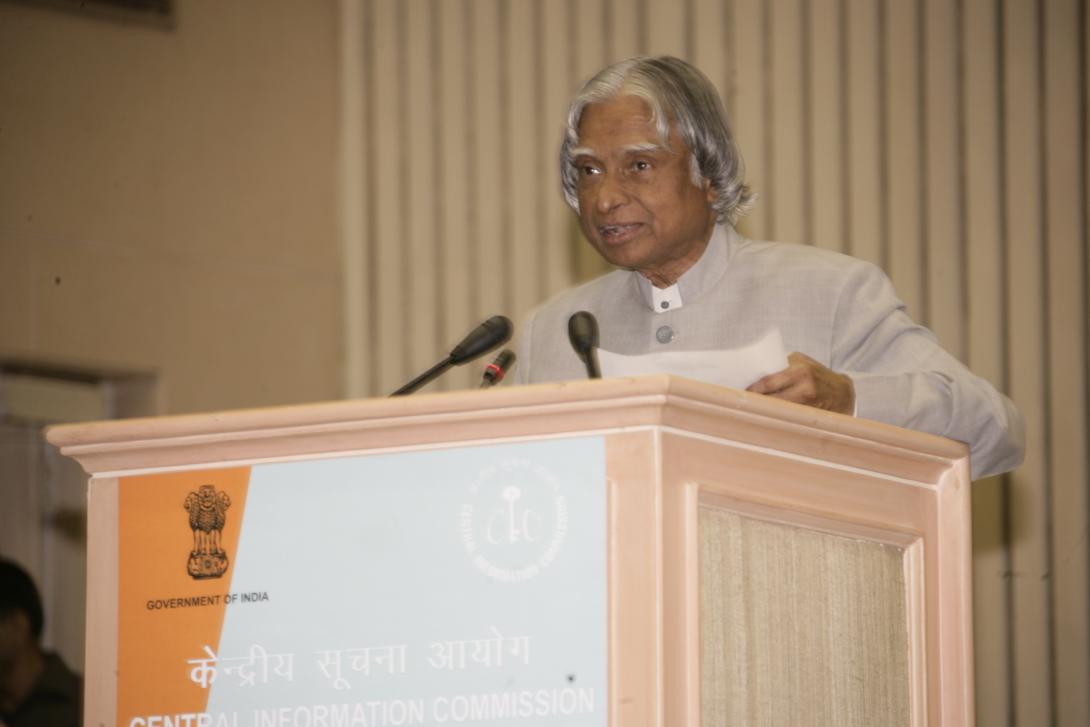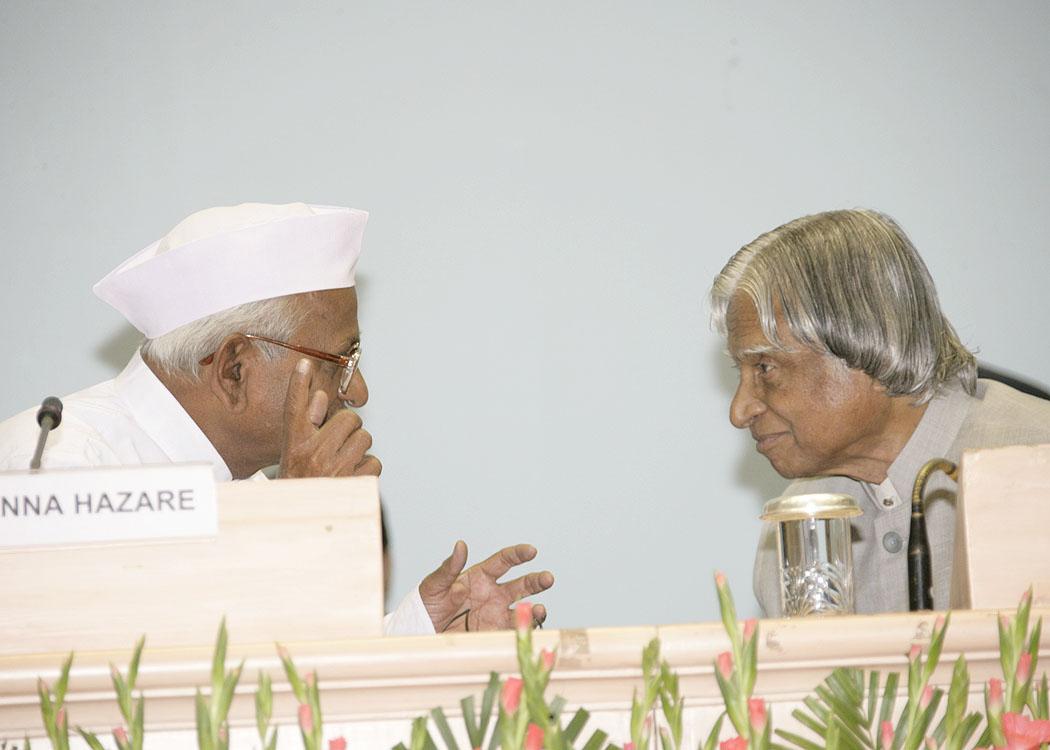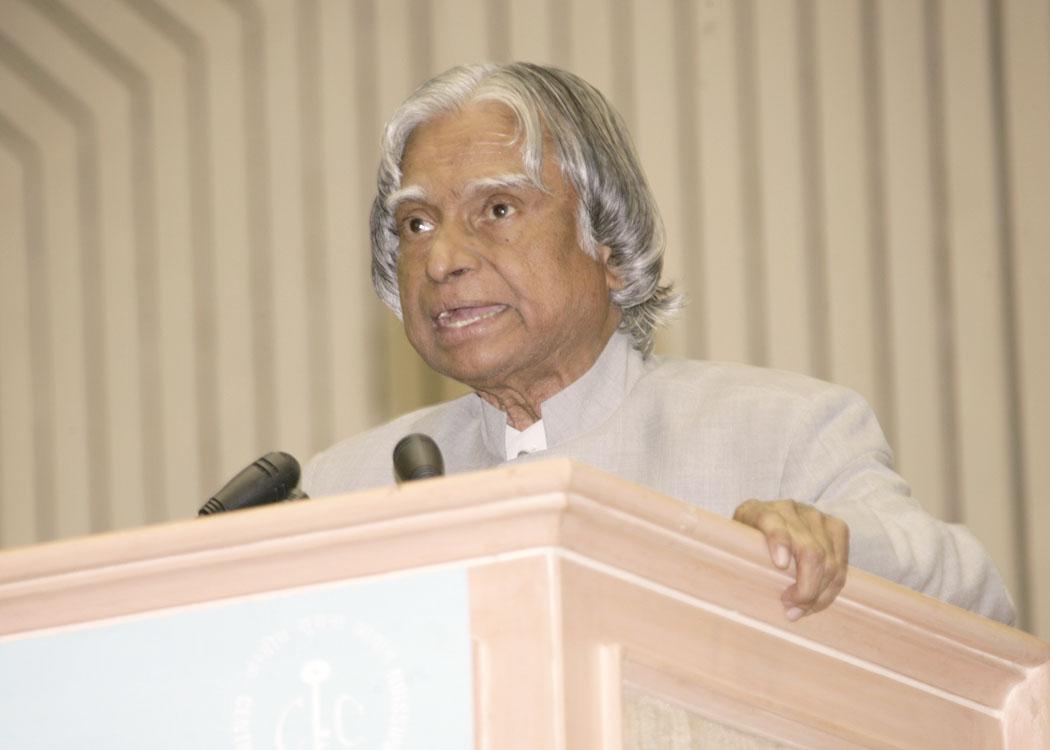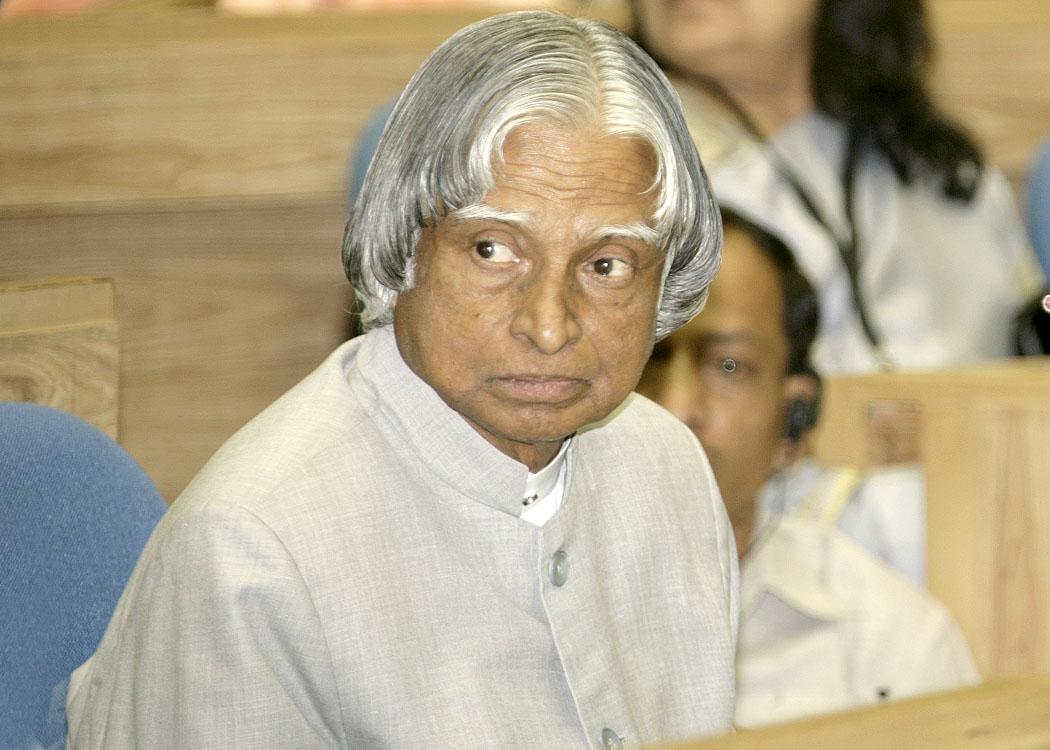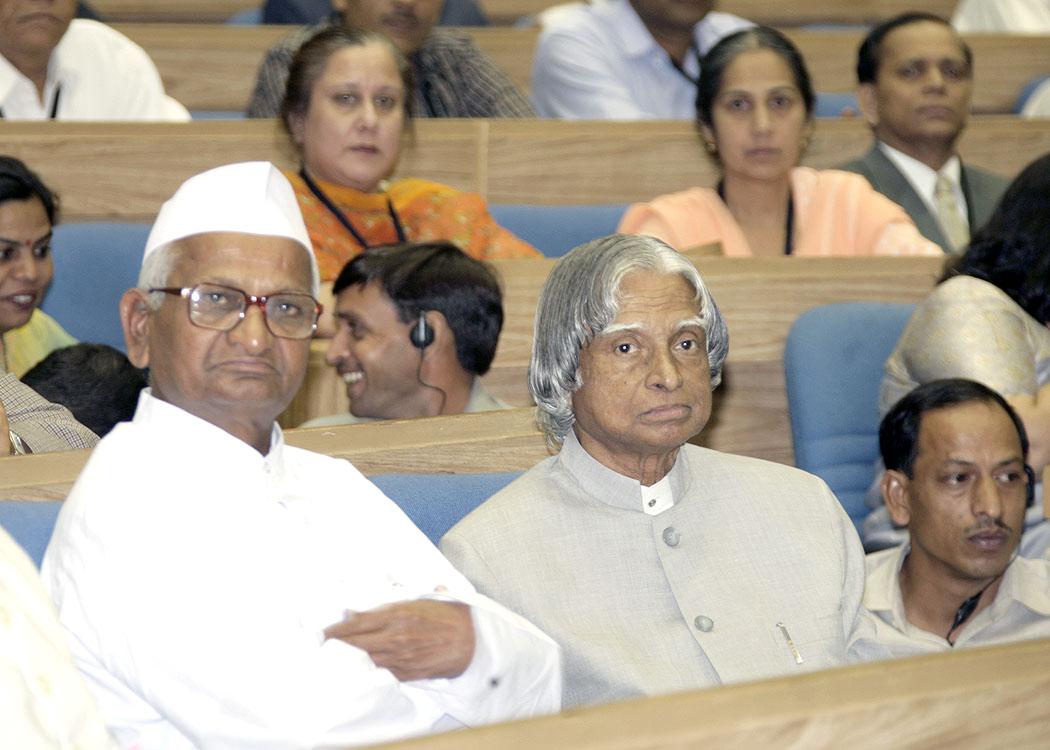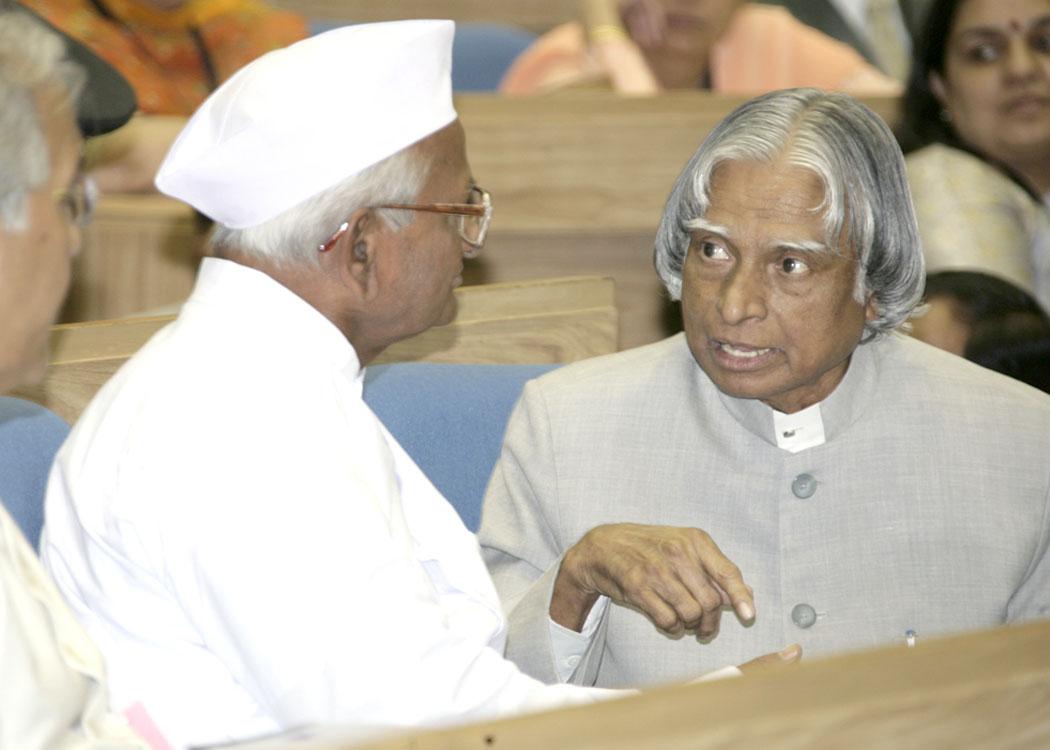Address at the Inauguration of National Convention on Right to Information, New Delhi
New Delhi : 13-10-2006
Importance of National e-Governance Grid in RTI Envisioned
"Right information enriches knowledge,
Knowledge makes the nation great"
I am delighted to participate in the inauguration of the national convention on Right to Information Act organized by the Central Information Commission on completion of one year of its enforcement. I greet the Central Information Commission, information specialists, societal transformers and distinguished guests. The Right to Information Act has been in operation for the last one year. I am sure a number of citizens have benefited by seeking information on various aspects on Government and Government establishments. Sometimes, the information sought will lead to suggestions for improving the functioning of certain institutions, if the information is sought properly and the provided information is understood by the receiver. However, to derive maximum benefit from this Act, active participation of all stakeholders such as political leaders, civil services, media, societal transformers and the citizens is required. I am sure, the annual convention will give an opportunity for bringing about better cohesion of approach and better understanding of both objectives and expectations arising from the implementation of the Act. This will also make India a highly participative democracy. While we are working on the Right to Information Act, the country is also poised to implement e-governance at all levels.
E-Governance for transparent administration
Good governance is being recognized as an important goal by many countries across the world. They have taken up specific initiatives for open government. Freedom of information is being redefined and supported by detailed guidelines. The Internet revolution has proved to be a powerful tool for good governance initiatives and the world is moving towards Internet governance. An important dimension of the Internet potential is the possibility of providing services any time anywhere. Along with this, there is a conscious effort to put the citizen as the center of focus of the governance. Citizens are being perceived as customers and clients. E-governance has to be citizen friendly. Delivery of services to citizens is considered as a primary function of the government. Particularly in a democratic nation of a billion people like India, e-Governance should enable seamless access to information and seamless flow of information across the state and central government in the federal setup.
Typical scenario: I visualize an election scenario, where a candidate files his nomination from a particular constituency. Immediately the election officer verifies his/her authenticity from the national citizen ID database through multifactor authentication, through a multipurpose Citizen ID card. His education credentials come from the school or university records. His track record of employment comes from various employers with whom he had worked. His income and wealth resources come from the income-tax department, and other sources. His property record comes from the registration of land authority across the country. His credit history comes from various credit institutions like banks. His/her civic consciousness and citizenship behaviour comes from the police crime record. His legal track records come from the judicial system.
All the details arrive at the computer terminal of the election officer within a few seconds automatically by the act of e-Governance software agents which crawls across the various state and central government web services directories through the network GRID and collects the information automatically and presents the facts in real-time without any bias. Artificial intelligence software analyses his credentials and gives a rating on how successful he will be as a politician. Election officer sitting at the remote block of the country decides on the spot and the election process starts. All the voters vote from their home through virtual polling booths. Is it a dream? Is it possible? If possible, when shall we have it? It is possible once India establishes national e-governance grid.
E-governance grid
Can we provide good governance to our one billion people? Can the governance speed up the delivery system? Can the governance differentiate between genuine transactions and spurious transaction? Can the governance ensure immediate action for the genuine cases, which satisfies the checklist for a particular service and pend the action on spurious transactions? Can this be done by e-governance at a cost affordable by our nation? If we have this system implemented, then I can call this an ideal example of the effective e-governance system for the citizens. E-governance system is a means to an end. We need enlightened citizens to realize the full benefits of the e-governance systems. It is people who finally uphold ethics, morality and righteousness.
National e-Governance Programme
NeGEP (National e-Governance Programme) is recently launched by Ministry of Information and Communication Technology with an outlay of Rs. 23,000 crore for implementing government to citizen services and establishing State Wide Area Network (SWAN) with State Data Centres with 2 mbps connectivity up to Block level with 100,000 Common Services Centres as front end. The primary focus of this NeGEP is aimed at upgrading the quality of governance by vastly improved delivery of government services in G2C and G2B domains. It is essential to establish the G2G e-Governance GRID by connecting District Level Data Centres to State Data Centre there by linking National Data Centre through a VPN based secured network. G2G E-Governance GRID should enable the secured dynamic workflow system across the government units thus ensuring the seamless file flow with digital signature authentication mechanism under the PKI framework. In the name of security, we shouldn�t delay the implementation of e-Governance system any further. Only in the digital environment, security implementation is highly possible according to the security policy of the organization. With that kind of secured IT environment in place, if any body wants to escape or try to erase their foot prints, it is thus making further foot prints; hence it is traceable at all level through system oriented and application oriented audit trails. But in the present manual system, security is more vulnerable and it is totally depends on manual process. Hence, a Secured G2G e-Governance GRID will provide the total life chain of the e-Governance system right from the top echelons of the state and central government up to the District level and Block level administration, so that the G2C and G2B services planned through NeGEP will become effective. If this connectivity is established in its true spirit, then the access to Right to Information, right from the bottom of the e-Governance Pyramid to the top level, the seamless information flow and access to information is thus ensured. Hence establishing G2G E-Governance GRID is the life line for the effective implementation of RTI Act.
In Rashtrapati Bhawan we have implemented an e-governance system to study all the management needs and determine the action requirements to be taken by Rashtrapati Bhavan and other agencies of Government and the relevant institutions both public and private. We are in the process of establishing a total e-governance system with G2G and G2C connectivity. CIC may like to study the system in view of the implementation of Right to Information. Now, I would like to discuss the checks and balances required while dealing with Right to Information of the Citizens.
Right to Information with a check and balance
The largest democratic nation, India has survived all vicissitudes, turbulences of all kinds over the last half century and more. Our democratic system has been gaining from strength to strength though I am not even for a moment closing my eyes to or beguiling myself into believing that there have been no weaknesses in the system. Our strength has always lain in overcoming those weaknesses and setting ourselves firmly on the road to higher and higher levels of democratic efficiency and progress. In that context, the bringing into being of the Right to Information has been an important milestone. The Act that came into being last year assures every citizen the right to know what the citizen should, and throws open the system of governance to total transparency and therefore inescapable accountability. Adequate safeguards have been built in, in the Act to ensure that that right is exercisable consistent with the dictates of national security which by no means can ever be compromised. After all, every right has to have checks built in to prevent its unbridled sway which is sure to lead to the certain failure of the very system. Now, I would like to give an example, how the Right to Information can provide immense relief to individuals who feel that they have been wronged.
Grievance removal through information
While I am in the midst of people who are keen to provide quality services to the common man, I am reminded of a case which happened in 2004. On May 26, 2004 when CBSE announced Class 12 results for Uttar Pradesh, the student Akhil�s World collapsed. The 17 year old aggregated 97% in Maths, Chemistry and Computer Science, but, had got a mere 13 out of 70 in Physics. At Rampur�s Diyawath Modi School nobody believes Akhil�s marks. Principal immediately faxed his concern to CBSE, Allahabad Regional Office. There was no way his star student could have done so badly. However, there was no response from the CBSE. On June 2nd 2004, Akhil sent an e-mail requesting me to intervene. On June 4, 2004 the case was referred to Ministry of Human Resource Development and the CBSE Chairman. CBSE acknowledged the mistakes and changed Akhil�s mark. His final score stood at 90.8%. I visualize such corrective actions take place without the need for individuals to go to apex system of the nation. Of course, then I was flooded with number of e-mails with such request. We could not find them to be genuine. Now, I would like to talk about the proactive actions which can be taken by organization in assessing the frequently asked information by citizens.
Assessment of the information needs
Every public authority should continuously assess the information needs of the people who contact them from time to time. This will help the authority concerned to ascertain what kind of information is generally requested for by the people. All such information which has been requested for by more than one citizen or a number of times should be uploaded in the CIS website and updated from time to time. This will also save the time and resources and will also diminish the chances of any divergent interpretation by the person seeking information. The best way to avoid such event is to make available as much information as possible by public authority itself. When information is available in public domain for access by anybody the possibility of its misuse diminishes. The governmental authorities will also have to ensure that the applicant does not use the information for purposes other than the intended purpose stated in the Act. The seeking of information should always be in public interest and for public good, which is the essence of freedom of information.
Fundamental Right of Citizen
The Constitution of India has declared that fundamental right to speech and expression and also the fundamental right to life and liberty should include the right of the citizen to access information. Every public authority must try to implement the provisions of the Right to Information Act under this spirit of implementing the fundamental right of the citizen.
Rashtrapati Bhavan Experience
I am told that 99 percent of the applications coming to the Rashtrapati Bhavan Secretariat are on mattes unrelated to Rashtrapati Bhavan. Due to lack of awareness these applications are sent here as people, it seems, believe that the President of India is directly responsible and can rectify their complaints (right from issues related to departmental promotions to land disputes). Even complaints against State Government departments are sent to us. As per the provisions of the Act, we transfer these applications to the concerned departments (Central or State) for action. This may also be the situation with many other departments. This lack of awareness amongst the public leads to delays for them and also places a heavy burden on the working of government departments and the concerned persons and sections. I would suggest that the Central Information Commission may evolve guidelines and provide it to the seekers of information about where and how to get the information. Also the information may be put in the website so that same question will not be repeatedly asked.
Suggestions for the Commission
I would like to suggest that the Commission could run extensive publicity campaigns to inform the citizen about who deals with what in the Indian Federal set-up. The Commission could also find out how many applications are received by various departments and ministries which have to be transferred and how much time is lost in doing so.
I would also like to suggest that the website of the Commission (cic.gov.in) could have a search engine, where Central Public Information Officers (CPIOs) can quickly look up decisions of the Commissions on cases which have come-up before them. At present the Commission's website has a section, "Decisions of CIC" which gives the text of decisions arrived at in cases which come to them in appeal. The text is a scanned image and are stored Quarter wise and therefore if a CPIO wants to consult a case decision, it is a time consuming process as he has to go through every case decision to find one, which has a reference to the point of law which is sought. A search engine will be able to assist.
Conclusion
Conscience is the light of the Soul that burns within the chambers of our psychological heart. It is as real as life is. It raises the voice in protest whenever anything is thought of or done contrary to righteousness. Conscience is a form of truth that has been transferred through our genetic stock in the form of the knowledge of our own acts and feelings as right or wrong.
A virtuous and courageous person can alone use the instrument of conscience. He or she can alone hear the inner voice of the soul clearly. In a wicked person this faculty is absent. The sensitive nature of his / her conscience has been destroyed by sin or corruption. Hence he or she is unable to discriminate right from wrong. Those who are leading organizations, business enterprises, institutions and governments should develop this virtue of the ability to use their own conscience. This wisdom of using the clean conscience will enable them to enjoy freedom. Once the conscience is clear there is no difficulty in making it as a open book and as an available information to all the stakeholders of the system.
I inaugurate the National Convention on Right to Information and my best wishes to all the participants for success in the mission of promoting India as the most informed and participative society in the World.
May God bless you.

